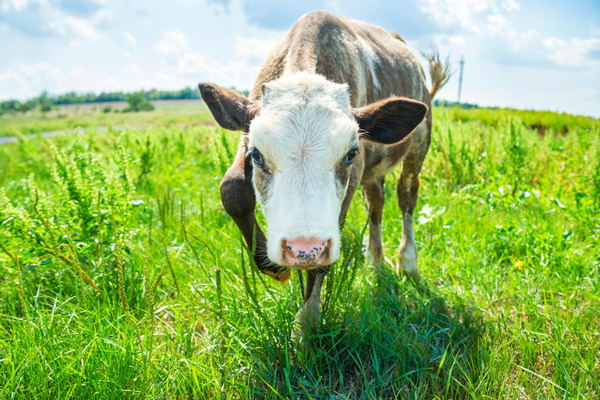The Ministry of Agriculture of the Republic of Kazakhstan has changed the rules for subsidizing and lending to livestock breeders
A number of changes that have a positive effect on the development of animal husbandry in the republic were presented by the Ministry of Agriculture in July this year, zakon.kz reports.
The first thing worth paying attention to are changes and additions to the Rules for the Development of Livestock Breeding, enshrined in the order of Minister Saparkhan Omarov of July 17.
In particular, noticeable changes have affected subsidies in sheep breeding: the standards for breeding and breeding work with breeding breeding stock of sheep have been increased from 2.5 to 4 thousand tenge, with commercial - from 1.5 to 2.5 thousand tenge.
The standards for the purchase of domestic breeding (from 8 to 15 thousand tenge) and imported sheep (up to 150 thousand tenge per head) were also increased.
 In order to create favorable conditions for farmers engaged in animal husbandry, the ministry changed the collateral policy for lending for the purchase of livestock, and also optimized the terms for considering applications for loans to farms and feedlots.
In order to create favorable conditions for farmers engaged in animal husbandry, the ministry changed the collateral policy for lending for the purchase of livestock, and also optimized the terms for considering applications for loans to farms and feedlots.
Now livestock can be purchased at a 1: 1 liquidity ratio. At the same time, after receiving subsidies by farmers, the security of a firm pledge will be 15%. The remaining 85% will be provided by the purchased livestock.
For additional support of Kazakhstani livestock breeders, the cost of diagnostic tests during quarantine has been reduced from 23.5 thousand to 4271 tenge per cow, and from 28.5 thousand to 8741 tenge for a bull imported from the countries of the European Union.
In connection with the appeals of akimats and agricultural producers, the Ministry of Agriculture of the Republic of Kazakhstan carried out work to optimize costs when conducting diagnostic tests on imported livestock during quarantine.
Since the epizootic situation for especially dangerous animal diseases in the European Union is stable, it was decided to reduce to one PCR testing of animals imported from the EU during quarantine for Schmallenberg disease.
Reducing the cost of research will significantly reduce the burden on agricultural producers when importing imported livestock.
It should be noted that the prices for diagnostic tests in the quarantine of imported animals are the same in all regions of the Republic of Kazakhstan.
Due to the import of foreign breeding cattle, the share of breeding stock in the country has increased significantly and amounted to 12% of the total number of cattle
In recent years, there has been an increase in the number of farms participating in the program of selection and breeding work with breeding stock of cattle using bulls-producers of meat direction. Since 2014, the number of such farms has more than tripled and exceeded 20.5 thousand. More than 1.1 million heads or 33% of the total breeding stock of cattle are covered by breed transformation.
Source: zakon.kz